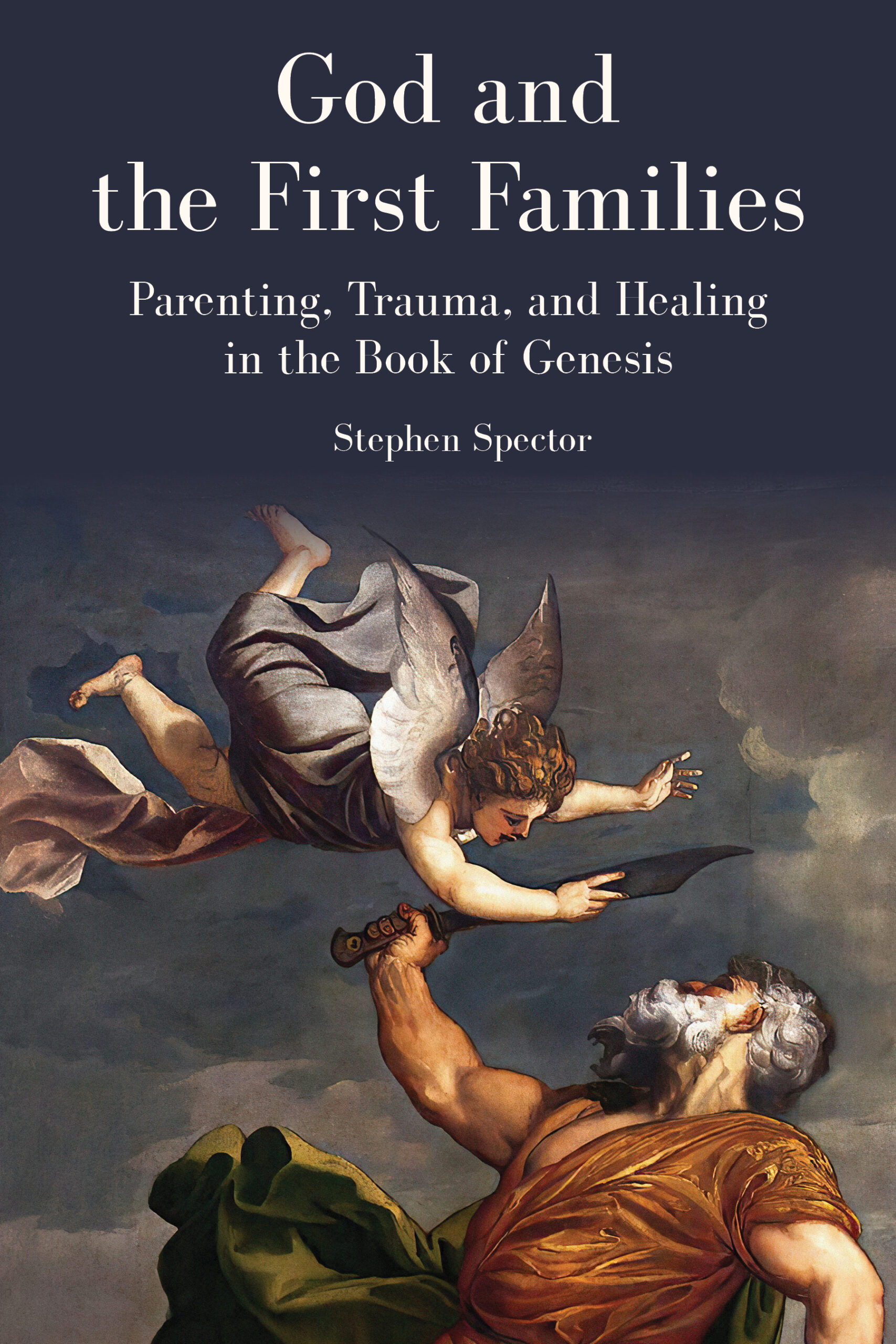About the Book
June 2026
God and the First Families offers a novel exploration of God’s role as a parent in the book of Genesis. Compellingly, author Stephen Spector introduces Americans’ four main perceptions of God and their four most common styles of parenting as lenses through which we can reckon with God’s own methods of parenting in the first biblical book.
God begins as an authoritarian parent who demands obedience and submission to authority, but shifts in striking ways. Next, God’s parenting seems entirely benevolent. Stunningly, God reverts to authoritarianism during the near sacrifice of Isaac—but then invents a new parenting style focused on guiding the characters’ moral and emotional growth. Many psychologists consider this the most successful childrearing method. Genesis reached that conclusion two and a half millennia ago!
Throughout, Spector engages with familiar stories—sibling rivalries, family ruptures, traumas—from unexpected angles. He dramatizes how parental love in Genesis builds resilience against trauma, another idea validated by modern psychology. Surviving trauma, healing from parental favoritism, repairing broken relationships, earning forgiveness, possibly even reconciling after injury—Genesis offers wisdom on all.
PRAISE
“This wise, compassionate, learned guide to trauma and love in Genesis enables us to better understand both the biblical book and the dynamics in our own fractured families.”—Rabbi David Wolpe, author of Teaching Your Children About God
“Keen observer Stephen Spector brings a wealth of learning and original insight to this lively rereading of familiar family stories. Readers will gain greater appreciation of the wounds and blessings that come with being part of a family—and useful tips on how to cope and heal.”—Arnold M. Eisen, chancellor emeritus of the Jewish Theological Seminary
“For those wishing to bring their contemporary understandings of God into line with biblical depictions of the divine, the interpretive strategy employed in the book will provide significant food for thought.”—Danna Nolan Fewell, editor of The Oxford Handbook of Biblical Narrative


